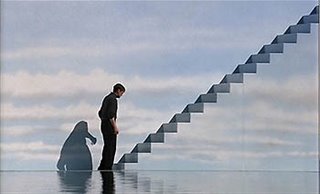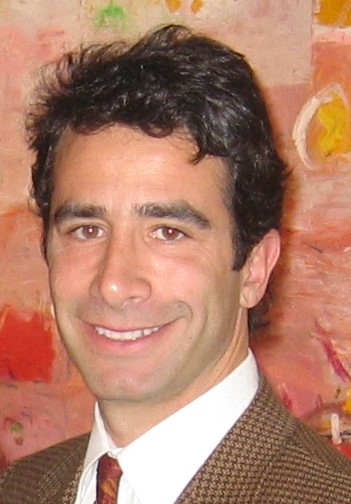Connected Aloneness
Have you noticed that you are spending more and more of your time in front of your PC? And less time in front of your usual media, like the TV, like the radio, like the newspaper? Well, of course you have. The data from Comscore and Compete say that you do. And my guess is that if you ask most of your friends, they would probably say so.
At the same time, have you noticed that more and more of time with friends is virtual? That you have more virtual relationships and friends?
We are rapidly transitioning to a model where we are abstracting from our humanness of enjoying in-person face-to-face physically based meetings. To virtual encounters. To virtual meetings. To virtual relationships.
So, let's back up a step. And ask when did this start? Well, historians will argue that it started the moment we as humans started using symbolic communication known as language. Which then became books. But let's skip some millennia and get to recent history.
Let's go back to when (if you are old enough!) you first saw someone walking around with a Sony Walkman. Remember how people would get irritated about that person with their earphones plugged into their ears just enjoying their own sonic world? Well, now its commonplace. But back about 20+ years ago, it was a new social phenomena.
It was the beginning of our use of our own personal worlds. Where we separated from the people around us. Enjoying our own experience.
Zoom forward two decades. Now the use of cellphones and MP3 players are commonly accepted. And even email, IM, and your own list of virtual friends on a social networking site like MySpace has its own representation and in some way, an emotional connection for yourself.
Recent studies on kids between grades 7 through 11 indicate that IM use with people you know in real life is being surpassed by IM use with people you virtually know online. That the discovery of virtual people through virtual sites is a real phenomena. And is already dwarfing the use of IM. These surveys also reveal that these kids view as a status badge the number of virtual friends they have listed as "friends' on the social networking site's profile.
Why is this happening? Well, because it's fun! And maybe because it offers a seemingly brand new social playing field. Where you can feel a sense of discovery, differentiation, identity, and mastery. Where you can feel a bigger global stage for your life. A sense that your life is connected to everyone. A sense that you are not alone.
Are we any happier because of it? Good question. I don't know. Each person should answer this for themselves.
Where is it going? I think we are on version 0.1 of the virtual world.
Face it, we are already living in the virtual world. Its just clunky. We live in a virtual world full of text blogs, podcasts, flash video embeds, IM, email, and web page surfing. And sure, we hear of all the "registered users" of Second Life.
By and large, it's a clunky 2D one-person-at-a-time text world that is in the cro magnon stages of something that is arcing to an inevitability. An inevitable virtual world that creates experiences for all of us that are like the ones in Total Recall and Snowcrash. Only better integrated with our physical lives.
We are rapidly, in fits and starts, building out this new world for all of us. One where we can feel connected to everyone. But right now, connected while being alone.
This is something to think about. As we continue to read blogs like this. View video on sites like YouTube. Meet virtual "friends" at MySpace. And go about our usual digital lives. All in front of our PC. With everyone, keystrokes away from us.
In our connected aloneness.
Have you noticed that you are spending more and more of your time in front of your PC? And less time in front of your usual media, like the TV, like the radio, like the newspaper? Well, of course you have. The data from Comscore and Compete say that you do. And my guess is that if you ask most of your friends, they would probably say so.
At the same time, have you noticed that more and more of time with friends is virtual? That you have more virtual relationships and friends?
We are rapidly transitioning to a model where we are abstracting from our humanness of enjoying in-person face-to-face physically based meetings. To virtual encounters. To virtual meetings. To virtual relationships.
So, let's back up a step. And ask when did this start? Well, historians will argue that it started the moment we as humans started using symbolic communication known as language. Which then became books. But let's skip some millennia and get to recent history.
Let's go back to when (if you are old enough!) you first saw someone walking around with a Sony Walkman. Remember how people would get irritated about that person with their earphones plugged into their ears just enjoying their own sonic world? Well, now its commonplace. But back about 20+ years ago, it was a new social phenomena.
It was the beginning of our use of our own personal worlds. Where we separated from the people around us. Enjoying our own experience.
Zoom forward two decades. Now the use of cellphones and MP3 players are commonly accepted. And even email, IM, and your own list of virtual friends on a social networking site like MySpace has its own representation and in some way, an emotional connection for yourself.
Recent studies on kids between grades 7 through 11 indicate that IM use with people you know in real life is being surpassed by IM use with people you virtually know online. That the discovery of virtual people through virtual sites is a real phenomena. And is already dwarfing the use of IM. These surveys also reveal that these kids view as a status badge the number of virtual friends they have listed as "friends' on the social networking site's profile.
Why is this happening? Well, because it's fun! And maybe because it offers a seemingly brand new social playing field. Where you can feel a sense of discovery, differentiation, identity, and mastery. Where you can feel a bigger global stage for your life. A sense that your life is connected to everyone. A sense that you are not alone.
Are we any happier because of it? Good question. I don't know. Each person should answer this for themselves.
Where is it going? I think we are on version 0.1 of the virtual world.
Face it, we are already living in the virtual world. Its just clunky. We live in a virtual world full of text blogs, podcasts, flash video embeds, IM, email, and web page surfing. And sure, we hear of all the "registered users" of Second Life.
By and large, it's a clunky 2D one-person-at-a-time text world that is in the cro magnon stages of something that is arcing to an inevitability. An inevitable virtual world that creates experiences for all of us that are like the ones in Total Recall and Snowcrash. Only better integrated with our physical lives.
We are rapidly, in fits and starts, building out this new world for all of us. One where we can feel connected to everyone. But right now, connected while being alone.
This is something to think about. As we continue to read blogs like this. View video on sites like YouTube. Meet virtual "friends" at MySpace. And go about our usual digital lives. All in front of our PC. With everyone, keystrokes away from us.
In our connected aloneness.





 Site Feed
Site Feed